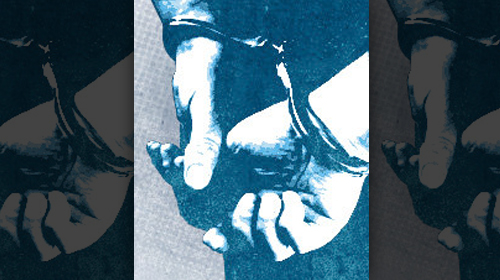
Today, the U.S. has the highest incarceration rate of any country in the world. With over 2.3 million men and women living behind bars, our imprisonment rate is the highest itÔÇÖs ever been in U.S. history. And yet, our criminal justice system has failed on every count: public safety, fairness and cost-effectiveness. Across the country, the criminal justice reform conversation is heating up. Each week, we feature our some of the most exciting and relevant news in overincarceration discourse that weÔÇÖve spotted from the previous week. Check back weekly for our top picks.
Earlier this week, the Illinois Senate voted 55-1 in favor of reinstating a retooled program for well-behaved inmates to reduce their sentences. The bill would allow a prisoner who took a class, underwent drug treatment or otherwise stayed out of trouble to earn up to six months of ÔÇ£meritorious good timeÔÇØ off of his or her sentence. The bill also grants the Department of Corrections power to deny early release to dangerous criminals.
Thanks to OhioÔÇÖs new sentencing policies, which took effect on October 1, 2011, fewer child support and nonviolent fourth- and fifth-degree felony offenders are entering its prisons. As a result, its prison population is at its lowest level since November 2008, and the stateÔÇÖs recidivism rate is at an all time low, 31 percent. The national average is 50 percent.
The Rhode Island House and Senate Judiciary Committees endorsed bills Tuesday that would decriminalize the possession of one ounce or less of marijuana, putting the bills before each chamber. The bills contain a "three strikes" provision: possessing an ounce or less of marijuana would become a civil offense punishable by a $150 fine, but if someone received three such violations within an 18-month period, he or she would face a misdemeanor with larger fines and up to 30 days in prison.
The New York TimesÔÇÖ Adam Liptak talks about federal judge John GleesonÔÇÖs criticisms of the unfair results of federal sentencing laws. ÔÇ£D.O.J. should seek mandatory minimum sentences,ÔÇØ says Judge Gleeson, ÔÇ£only in the cases for which Congress intended them: in cases against leaders and managers of drug enterprises, not the low-level offenders like [small-time dealer Jamel Dossie who received a five-year mandatory sentence] who constitute the bulk of the federal drug docket.ÔÇØ You can read Judge GleesonÔÇÖs powerful statement .
The New York Times assembled answers to this question from researchers, advocates and the President of Guatemala in a well-balanced look at whether itÔÇÖs time for Latin America and the United States to abandon the war on drugs and deal with the issue as a matter of public health rather than combat.
Learn more about overincarceration: Sign up for breaking news alerts, , and .
